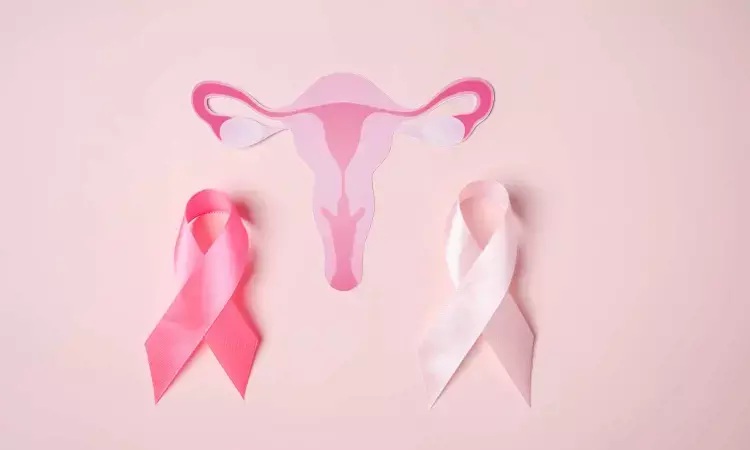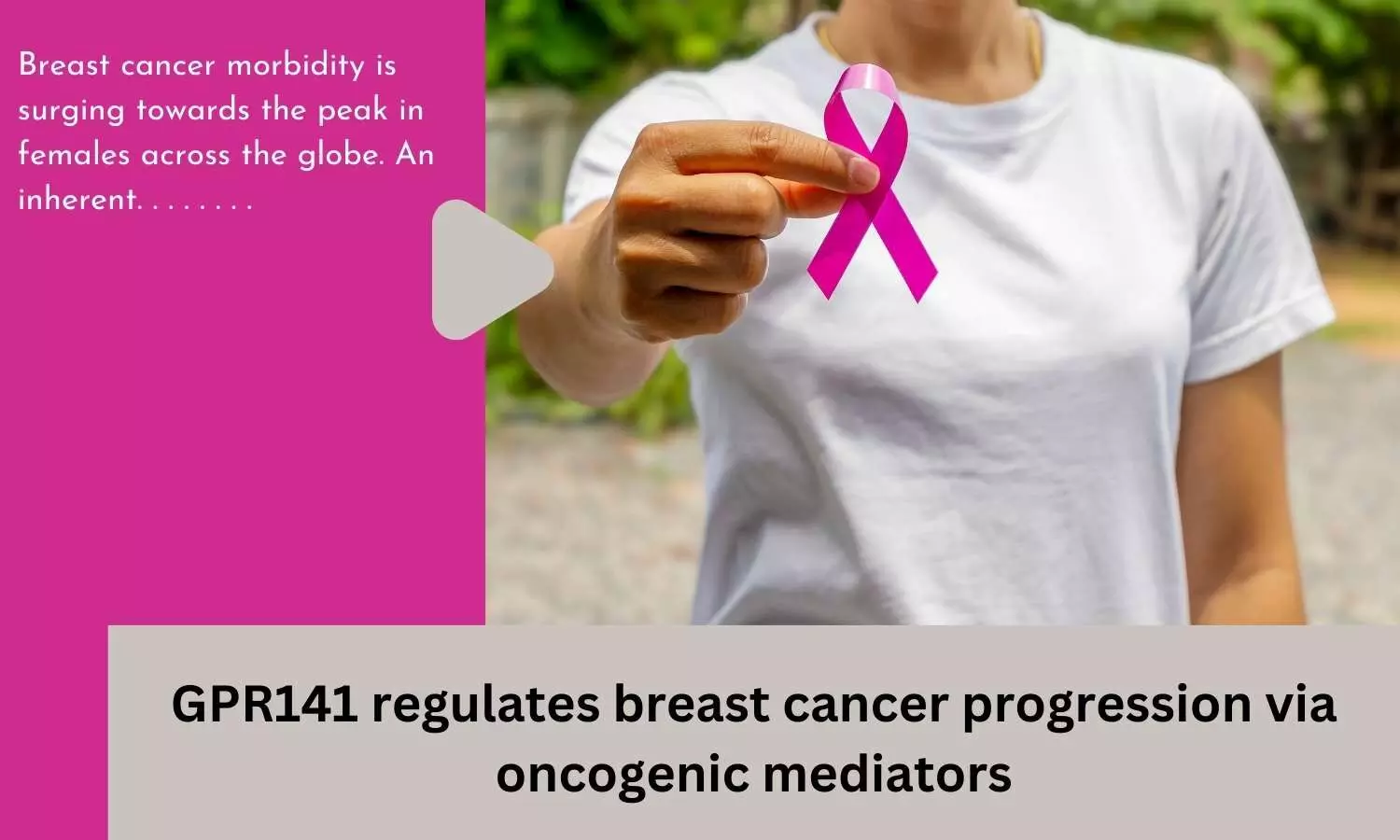- Home
- Medical news & Guidelines
- Anesthesiology
- Cardiology and CTVS
- Critical Care
- Dentistry
- Dermatology
- Diabetes and Endocrinology
- ENT
- Gastroenterology
- Medicine
- Nephrology
- Neurology
- Obstretics-Gynaecology
- Oncology
- Ophthalmology
- Orthopaedics
- Pediatrics-Neonatology
- Psychiatry
- Pulmonology
- Radiology
- Surgery
- Urology
- Laboratory Medicine
- Diet
- Nursing
- Paramedical
- Physiotherapy
- Health news
- Fact Check
- Bone Health Fact Check
- Brain Health Fact Check
- Cancer Related Fact Check
- Child Care Fact Check
- Dental and oral health fact check
- Diabetes and metabolic health fact check
- Diet and Nutrition Fact Check
- Eye and ENT Care Fact Check
- Fitness fact check
- Gut health fact check
- Heart health fact check
- Kidney health fact check
- Medical education fact check
- Men's health fact check
- Respiratory fact check
- Skin and hair care fact check
- Vaccine and Immunization fact check
- Women's health fact check
- AYUSH
- State News
- Andaman and Nicobar Islands
- Andhra Pradesh
- Arunachal Pradesh
- Assam
- Bihar
- Chandigarh
- Chattisgarh
- Dadra and Nagar Haveli
- Daman and Diu
- Delhi
- Goa
- Gujarat
- Haryana
- Himachal Pradesh
- Jammu & Kashmir
- Jharkhand
- Karnataka
- Kerala
- Ladakh
- Lakshadweep
- Madhya Pradesh
- Maharashtra
- Manipur
- Meghalaya
- Mizoram
- Nagaland
- Odisha
- Puducherry
- Punjab
- Rajasthan
- Sikkim
- Tamil Nadu
- Telangana
- Tripura
- Uttar Pradesh
- Uttrakhand
- West Bengal
- Medical Education
- Industry
Diabetes Risk Reduction Diet lowers risk of Ovarian Cancer

New research revealed that Ovarian cancer is less in women who have high adherence to a diabetes risk reduction diet. Women with the highest DRRD adherence scores had a 24% lower risk of ovarian cancer compared to those with the lowest scores, even after adjusting for several potential confounders like measures of endogenous estrogen exposure, use of OC, family history of ovarian/breast cancer, and total energy intake. The study results were published in the journal Cancer Causes & Control.
Diabetic women are at high risk of ovarian cancer due to the modulation of the insulin-like growth factor caused by hyperglycemia and hyperinsulinemia. A diabetes risk reduction diet that is characterized by high intakes of cereal fiber, polyunsaturated fatty acids, coffee, and nuts, and low intakes of carbohydrates, red and processed meat, sugar-sweetened beverages, and trans fatty acids was proposed for the prevention of T2 diabetes risk. Recent literature showed that this diet has reduced mortality from all causes like cardiovascular diseases and cancers. Hence researchers conducted a study to investigate the relationship between a diabetes risk reduction diet (DRRD) and ovarian cancer.
The study was carried out in Italy using information from a multicentric case-control study that had 1031 incident ovarian cancer cases and 2411 controls admitted to hospital centers for acute non-malignant disease. A validated food frequency questionnaire was used to collect information on the subjects’ diet before hospital admission. A score based on 8 dietary components was used to gauge adherence to the DRRD, giving higher scores for greater intakes of cereal fiber, coffee, fruit, and nuts, higher polyunsaturated to saturated fatty acids ratio, the lower glycemic index of diet, and lower intakes of red/processed meat, and sweetened beverages/and fruit juices. Higher scores indicated greater adherence to the DRRD. Multiple logistic regression models were fitted to calculate the odds ratios (OR) of ovarian cancer and the corresponding 95% confidence intervals (CI) for approximate quartiles of the DRRD score.
Key findings:
- The relationship between the DRRD score and ovarian cancer was inverse, with an OR of 0.76 for the highest quartile of the score compared to the lowest.
- Results did not alter with the exclusion of women with diabetes.
- Inverse associations were observed in strata of age, education, parity, menopausal status, and family history of ovarian/breast cancer.
Thus, high adherence to a diet able to reduce the risk of diabetes may also be inversely associated with ovarian cancer.
Further reading: Esposito, G., Turati, F., Parazzini, F. et al. Diabetes risk reduction diet and ovarian cancer risk: an Italian case-control study. Cancer Causes Control (2023). https://doi.org/10.1007/s10552-023-01722-x
BDS, MDS
Dr.Niharika Harsha B (BDS,MDS) completed her BDS from Govt Dental College, Hyderabad and MDS from Dr.NTR University of health sciences(Now Kaloji Rao University). She has 4 years of private dental practice and worked for 2 years as Consultant Oral Radiologist at a Dental Imaging Centre in Hyderabad. She worked as Research Assistant and scientific writer in the development of Oral Anti cancer screening device with her seniors. She has a deep intriguing wish in writing highly engaging, captivating and informative medical content for a wider audience. She can be contacted at editorial@medicaldialogues.in.
Dr Kamal Kant Kohli-MBBS, DTCD- a chest specialist with more than 30 years of practice and a flair for writing clinical articles, Dr Kamal Kant Kohli joined Medical Dialogues as a Chief Editor of Medical News. Besides writing articles, as an editor, he proofreads and verifies all the medical content published on Medical Dialogues including those coming from journals, studies,medical conferences,guidelines etc. Email: drkohli@medicaldialogues.in. Contact no. 011-43720751



